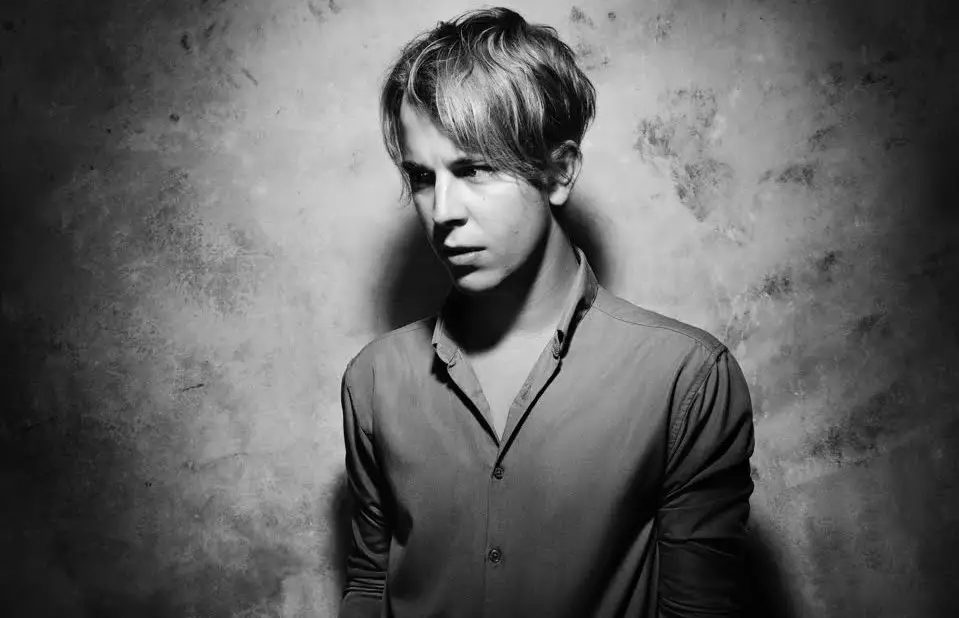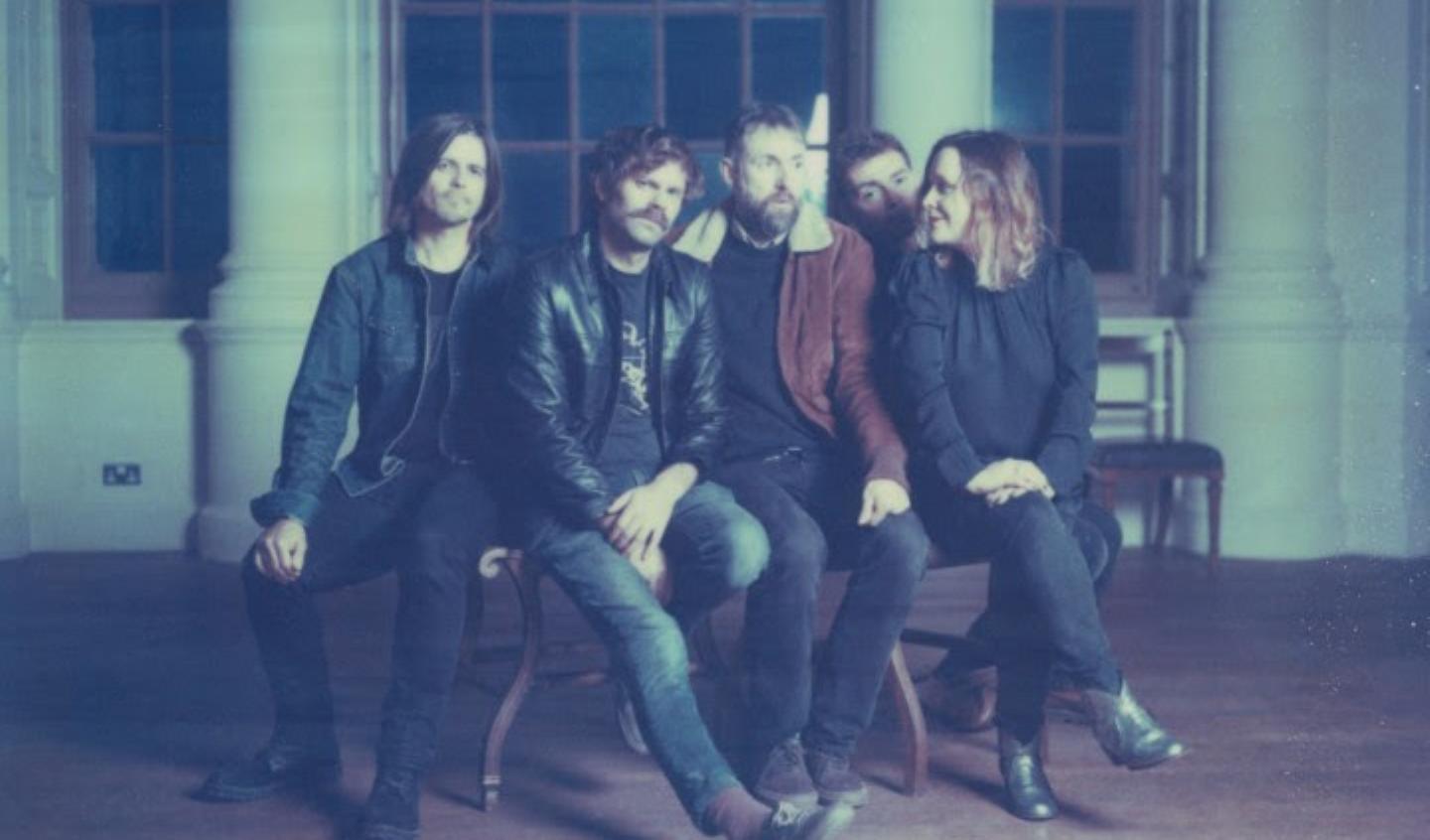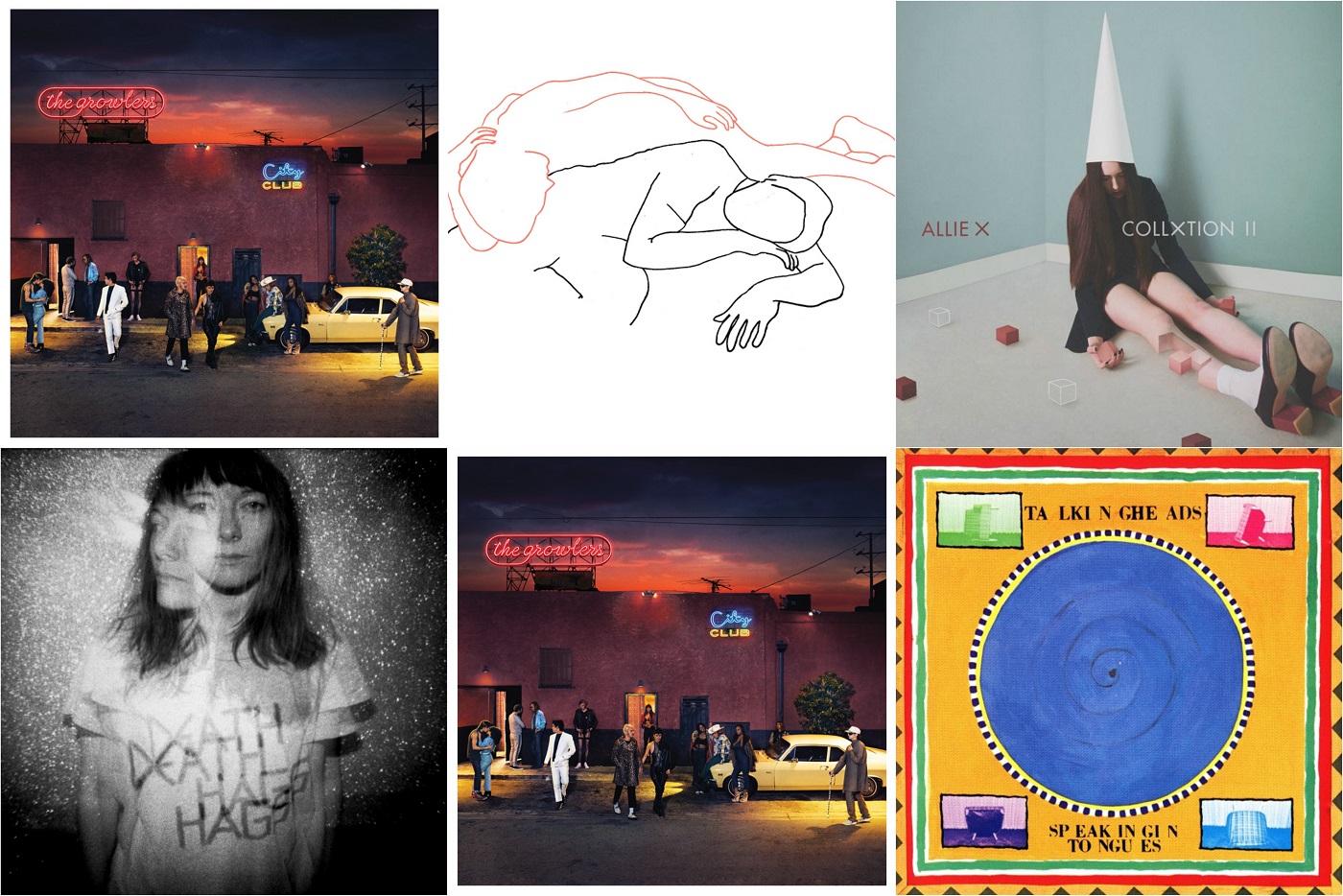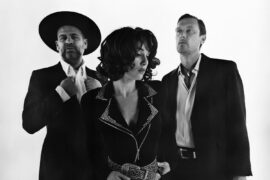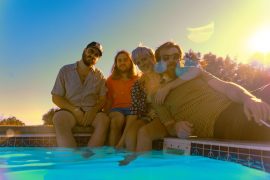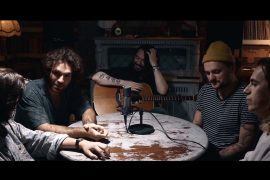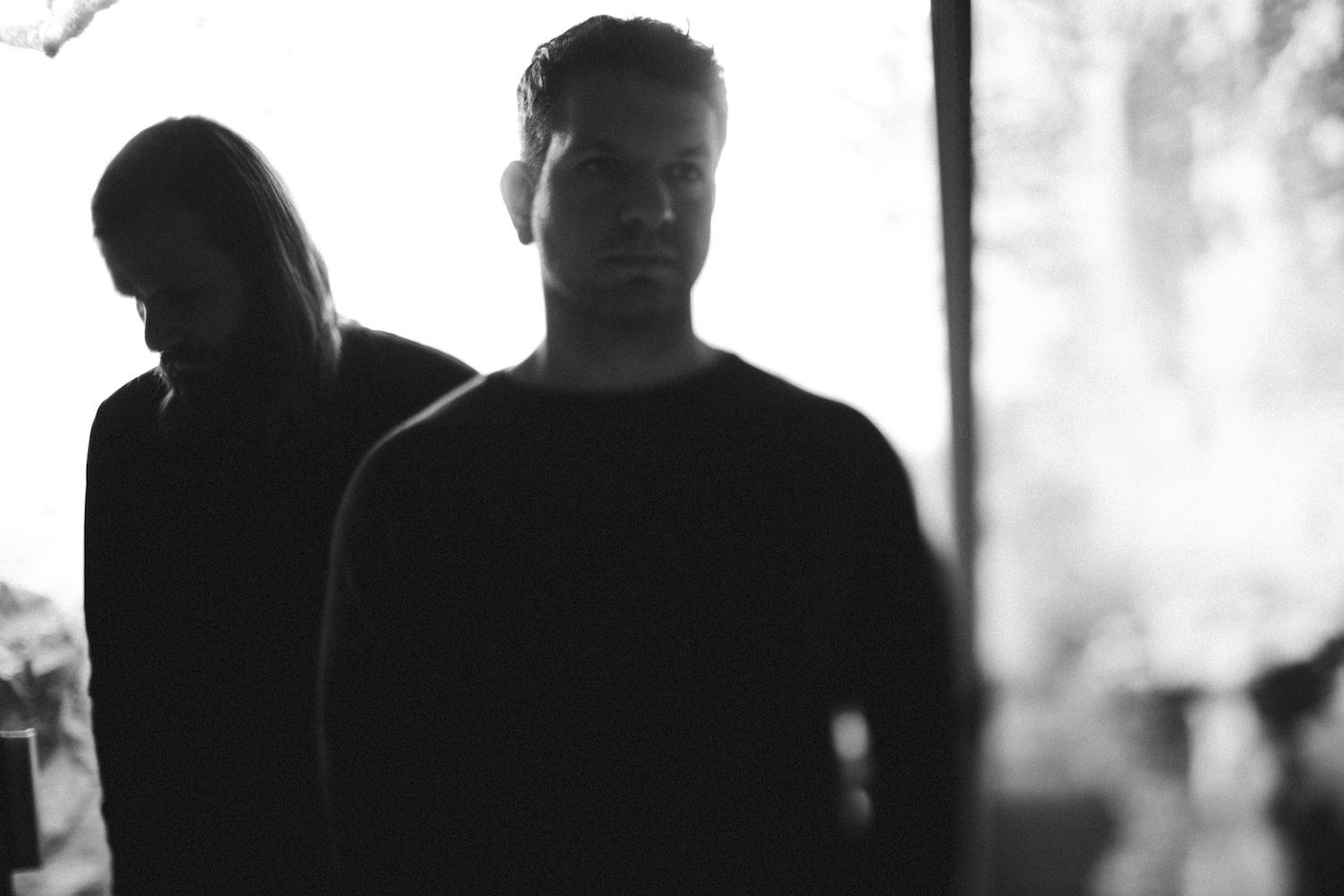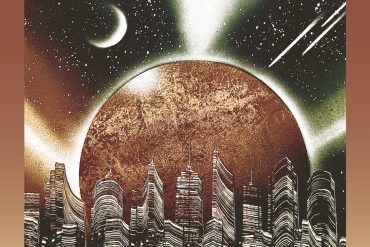I’m not trying to make a “sound.” I’m less bothered by that. I just want to make something that feels real.
There is a certain connectivity about music that is inherently matchless. It evokes one’s innermost emotions and ultimately affects one’s entire being. Throughout its varying interpretations and incarnations, one thing remains innately the same: the ability for music to be an attachable affectation for all.
If there is one person who wholly sums up this notion, it is definitely British singer-songwriter Tom Odell. Making music from a very young age, he has been finding impressive international success with both of his albums, the certified-platinum 2013 debut Long Way Down (Sony Music UK) and its 2016 successor, the certified-silver Wrong Crowd (June 2016 via Sony Music UK). Despite his incredible success, however, Odell remains hyper-aware of himself and his musical creation. His inimitable talents certainly shine, but his own personal perceptiveness is equally as impressive.
Atwood Magazine recently chatted with Tom while in the U.S. on his No Bad Days tour. Simultaneously nonchalant and wholly present, Odell offers an effortless coolness and charm that is magnetic. As we chatted about everything from finding everyday inspirations to refusing to listen to music on a plane, he maintains an acute awareness with himself. The man and the musician are perfectly balanced together; there is a palpable veracity that makes Tom Odell an honest, emotive, and unique creative.
Watch: “Silhouette” – Tom Odell
[youtube=https://youtu.be/zIDPPzCT4Ew?t=0s]A CONVERSATION WITH TOM ODELL
Atwood Magazine: So, you’ve been making music for awhile. Every interview I’ve seen, you say that you started when you were about twelve. And then the first album came out when you were around 21 -- what is one thing that you’ve noticed in your progression with music that’s either been consistent or constantly changing? Is there one thing that you can think of?
Tom Odell: I don’t know — I think the way that I write is constantly changing. But at the same time, there’s certain aspects of it that are consistent. I tend to write using the piano, but I’ve been trying — I’ve been writing differently this year, a bit. I’ve been working much more on the lyrics first.
Did you used to start with the instrumentation, and then write?
Tom: Yeah, I used to be more of a music person first, but now it seems that this year has been a little bit more lyrically-focused, and the music comes afterwards. But I don’t know what’s changed — actually, I think a lot has changed.
And just in the industry in general, have you noticed anything?
Tom: Oh yeah, even since I’ve put out my first album, so much has changed since then. I think it’s in a really interesting place, music, because it’s like, it’s sort of diminishing record sales.
Right -- it’s all digital now.
Tom: When I first put my music out, the industry felt like it was really sort of in this state of no one quite knew what was going on; now it feels like, people understand it a little more now. The streaming thing seems more like something that we’ll be living with for a while.
Do you like it?
Tom: Yeah, I think it’s great. I listen to music a lot via streaming. But in terms of actually making music, it seems pretty similar.
It’s constantly growing! So then, how would you classify yourself as an artist? Do you think that you have a specific genre that you adhere to, or do you like to mess around with different things?
Tom: I think what’s great about where the music industry is, is that people are genre-hopping so much, and it’s such a fusion. There’s been so much music that’s been made already.
Does a “genre” even exist anymore?
Tom: No, I’m not sure it does. Like, when you listen to that [The] 1975 album, it goes through so many different styles. It’s great — it’s great that they’re like a big commercial band that do that, and do well. I think all sorts of artists are doing it — like, you listen to the Kanye West album, and it’s like, so musically rich. It’s really interesting what’s happening. I think that I’m always just sort of discovering new music. I really like the new Gigs album. He’s a South London rapper, and he’s insane.
I’ve learnt to just be around people where you can find that inspiration.
How do you think that you can differentiate yourself from other artists?
Tom: I don’t really try. I think it’s about just being as honest and as emotive and as real as possible. You know, like, I hate to use the phrase — but like, “keeping it real,” that’s how you make good art.
It’s a cliche, but it’s a cliche for a reason!
Tom: Yeah, it’s when you start to try and be contrived or anything — whenever I found myself falling down that track, trying to do something because I think it’s going to sound good is when it’s never good. But whenever it’s honest and real — that’s what I try to do, I try to just be honest.
And your songs and your lyrics tend to tell a story; they’re very evocative, and I can definitely see a lot of imagery in them. Where do you typically draw that influence from; where do you typically find that inspiration to tell that story?
Tom: I think from everything, really. I don’t think there is a “thing.” It might be from a book, or it might be from a film, or it might be from a play I’ve been to; it might be something that I’ve seen just sitting here in this bar, you know? Or it might just be something that’s just happened to me that day, or it might be something that I feel sad about or feel happy about — I don’t know, I think it’s such a rich pool that I draw from. I think it’s important, and I think I’ve learnt to just be around people where you can find that inspiration. And listening to music that has richness, and has a depth to it, or a film that has depth to it. Constantly trying to feed that muse is — you just have to feed it in order to remain inspired, and to actually want to even do it in the first place. To sit down at the piano, you have to want to do it, you know? You have to keep stoking the fire.

If you could play any other instrument, what would you do?
Tom: I’d like to play like, saxophone or something. It’s just a great instrument, and I’d really like to learn it. I’d like to play the guitar better; I’ve tried to play guitar since I was like, 14, and I’m still shit. I’m still useless.
But you’re still great at piano!
Tom: Right, and it’s annoying! I was in the hotel room earlier, and I was playing guitar — I travel around with a guitar most of the time — and I can play, but I wish I could play well.
You’ve still got time to learn!
Tom: Just a bit.
So in terms of your albums, which are both really wonderful, and really well done -- and both have had relatively good success so far -- tell me a little bit about the cultivation of the songs, and the kind of emotions you were trying to evoke or emulate with both of them…
Tom: There’s so much…
Are they different in their processes?
Tom: I mean, the first one, Long Way Down, was — I have a terrible memory, so I’m trying to think back to well over four years ago now. It’s very innocent, that album, it’s very innocent in everything about it: in the songs, in the way it was recorded, in the way I sang on it. When I listen to it, I hear naivety — but it’s great. It’s great to have naivety. You only get it once. And Wrong Crowd is a bit more of the album that has complexity to it, [which] I’m more drawn to. It was difficult to make, Wrong Crowd.
In what way?
Tom: It was just hard — it was just hard to make it. It wasn’t easy.
Do you think that you had an expectation to meet, because it was a sophomore album?
Tom: No, nothing like that. It was just trying to figure out everything. But I’m really proud of it; I’m proud of the songs on it. I’m a lot more proud of Wrong Crowd than I am of the other one.
Watch: “Wrong Crowd” – Tom Odell
That’s good; you can just keep getting better! And I know that you cite a lot of your influences as Elton John and David Bowie - if you had to pick one song by each of them that is your biggest influence, what would you pick?
Tom: I like the song “Skyline Pigeon” by Elton John. Bowie — there’s just so many of Bowie. “Life on Mars,” for me, touches on something that’s verging on profound, and I don’t know what it is. It was a bold subject to write about, and I still don’t know what the hell he’s talking about in the song, but for some reason the collection of lyrics he uses have a serendipitous, philosophical value to them. I’m not sure he meant to do it. But I mean basically, if you don’t try, you make good things. One of the things I’ve learned, is that you can tell when you try too hard.
Your instinct and your heart and your soul are so much better educated than your brain.
Yeah, at that point it just feels too forced at that point.
Tom: I just did this duet with this amazing singer who I’m such a big fan of, and me and Andy [Burrows] produced it; it’s a song that I wrote about a year and a half ago, and I’ve been trying to get somebody to do it for awhile, but I could never get the right person to sing it. And this person is so talented, and I’m such a huge fan; and we just sort of did it in like, two days, and it was so effortless. We didn’t try too hard, and I’m so happy with it. I’m so excited about it. It was such an effortless process; and it’s such a learning curve, when things are sometimes effortless, and you just seem to keep striking gold, when you don’t try.
It’s so organic, and it just happens.
Tom: Yeah! Your instinct and your heart and your soul are so much better educated than your brain. Your brain has a superficial education; [there’s] a superficial intelligence to it. Whereas, it’s something else — without sounding overly fucking cliched — there’s something else within you: that instinct, that innate intelligence is the thing that great artists seem to find again and again. You listen to like, Neil Young, and he keeps finding this like, wandering in the dark, and he keeps finding things. It’s such a beauty to have that.
Totally. And I feel like, if you’re listening to your head more often than your heart or soul, everything just kind of becomes stagnant.
Tom: Yeah, and you end up like the guy in that book The Moviegoer — this guy, his whole life, does this or does that at that time, and everything’s so sensible. Sometimes you have to not be sensible, though.
Of course! There’s a time and a place for responsibilities, but at the same time, if you’re not feeling fulfilled, what’s the point of what you’re doing?
Tom: It’s interesting. And we grow up with very preconceived rules and ideas about what we “should” be doing or what we “shouldn’t” do. But the more that I’ve done this job, the more I’ve realized that those preconceptions and those rules and those ideas of this sort of society that we live in can be so restricting sometimes. You know, in order to make something that’s really good, you have to be thinking the other way around. I don’t know — that’s maybe talking shit, but whatever.
Not at all! And you seem to travel all the time -- you seem to always be in a different place; at least on social media, all I see is another new city. How has that sort of “vagrant” lifestyle affected you? I don’t know if “vagrancy” is the right word…
Tom: Well, I think you basically — it’s interesting the first 2-3 years you’re doing it. The first 2-3 years, you dine out on that sort of adrenaline every night. You’re living a hundred miles per hour, and constantly after shows you’re going out late and you’re constantly living off of that very superficial energy, which is traveling. It’s exciting, seeing a new city every day. But after a while, you slowly balance out, and you adjust, and I’ve found myself a bit more adjusted and balanced this time around, and I don’t feel so wide-eyed in every city I go to, and I don’t feel the need to always go explore.
Sometimes you just need to relax!
Tom: Yeah, and just chill, and read and write, or maybe watch a film, and you may go and take a few photos, but living off that adrenaline is very difficult when you go home, because then suddenly you feel exhausted and sort of empty.
Do you prefer the constant traveling, or would you like to stay one place?
Tom: I sort of like a bit of both. I was home for a few weeks in London, and that was quite nice. But at the same time, while I’m away, I’m quite happy. I feel like, it’s like when people ask “cats or dogs?” and I just kind of like both.
So then what’s one thing that you’ve noticed everywhere you’ve gone that’s sort of universal, in terms of how people respond to your shows?
Tom: Very minor differences, to be honest with you. It’s actually more locally, within certain countries. Like, people react differently on the east coast than they do on the west coast; in London, people react differently than like, Birmingham. In terms of actual countries, it’s more the size of the city. If you go to a small city or a small town, you’ll often find that the reception is slightly more welcoming. They don’t often get a lot of artists there. But then like, in London, they get a lot of artists coming there, so they’ve already been to three gigs that week anyway, and you’re just another night out. If you want to go out, you can find something.
I’m not trying to make a “sound.” I’m less bothered by that. I just want to make something that feels real.
It’s interesting! So why does music matter to you?
Tom: I don’t really know — it just sort of does. It seems to bring me the most joy that I’ve ever had in my life. I find it to be such a wonderful thing. I’m sure there’s a bunch of tired cliches that I could use here, but it really is — it’s like, music is what feelings sound like. To me, it’s the most powerful of them all. I like other types of art, but I don’t get the same kick out of like, a Matisse painting as I do listening to Bob Dylan’s “Freewheelin’.” I just don’t get the same kick out of it. But I’m sure if an artist was sat here, they’d disagree.
It’s always subjective -- art is always very subjective.
Tom: It’s very all-encompassing as well; it’s very all-engrossing, music. You can’t escape it. When you’re at a concert, you can’t escape that. When you’re at an art gallery, it’s quite easy to look away. I guess it’s for people with short attention spans.
That’s a good way to think about it!
Tom: It requires a lot of attention to really get the depth out of a Matisse painting, to a certain extent. Whereas listening to the last Kanye West album, it bombards you. You can’t escape. What’s interesting is — I was talking to my girlfriend about this the other day: my girlfriend is constantly soundtracking her life. She walks to go to the bus stop, she puts her headphones on, and she soundtracks. When she goes for a run, she soundtracks her life with headphones. I realized the other day, that I never do that. Like, if I go for a run, or on a walk, or just go and do something, I never listen to music. When I’m on a plane, I never listen to music. When I listen to music, I have to just be listening to music and not doing anything else.
Interesting -- so you can’t multitask with it.
Tom: Yeah, no. It’s the worst. Like, reading and listening to music — I can’t do it. It’s insane. I don’t know how anyone can do it!
You’re reading words, and you’re listening to words, and it’s too much!
Tom: And I’ll put my headphones on during a flight, and I’ll put them on silent; like, the noise-cancelling headphones.
So you just don’t fly with music?
Tom: No, no. Unless — maybe I’ll do it sometimes while we’re taxiing, but otherwise, no.
That's so interesting. So I guess, what motivates you, then, to try and push the boundaries?
Tom: My music is definitely not “pushing musical boundaries.”
But it’s unique!
Tom: It’s unique, yeah, but I’m not trying to make a “sound.” I’m less bothered by that. I just want to make something that feels real. But what pushes boundaries? What makes something feel really relevant, and current? What makes music sound like it’s got a bite to it? I believe that it’s the lyrics. The lyrics are the thing that — if you sing about something that you feel right then, then the generation which you’ve grown up with can relate to it. The music itself, there’s only so many different things you can do. I don’t know. I don’t know if it carries much — there’s only so many sounds you can make. It’s more the combination of it all that makes it unique.
Okay so, to wrap up, what are you most proud of with what you’ve done?
Tom: I’m most proud of — I have a dream that in like, ten years, I have like ten albums out. I have a dream that I’ve made ten albums. I guess the thing that I’m really the most proud of is that I already have two albums out, and probably like forty more songs on YouTube that you can find and listen to. And I’m proud of that. I’m proud of my songwriting. I think the thing that I’m most proud of is songwriting, and I hope that I get to do it forever. It fills me with so much satisfaction, with so much deep satisfaction, to write anything. To write — there’s just something about it. I don’t know what it is, but if I don’t write every day, then I feel like a bum.
Watch: “Another Love” – Tom Odell
[youtube=https://youtu.be/MwpMEbgC7DA?t=0s]To create honest and real music, one must be honest and real with themselves — and that is something that Tom Odell has done with ease. Though he is still young, Tom has accomplished a number of impressive feats in his career — but it’s not surprising in the slightest to see the exponential success that he has achieved thus far. He exudes a charming panache unlike any of his contemporaries; a sagacious spirit that is knowingly and carefully riding this crazy wave of fame. Tom Odell is keeping it real — in the least cliched way possible.
Purchase Long Way Down on iTunes here.
Purchase Wrong Crowd on iTunes here.
Connect with Tom Odell on Facebook, Twitter, Instagram
Discover more new music on Atwood’s Picks


